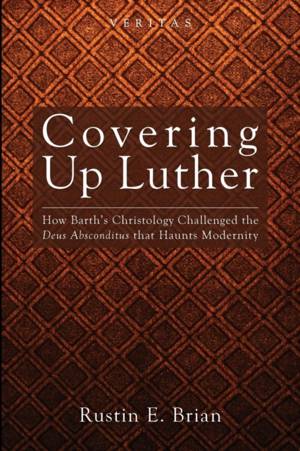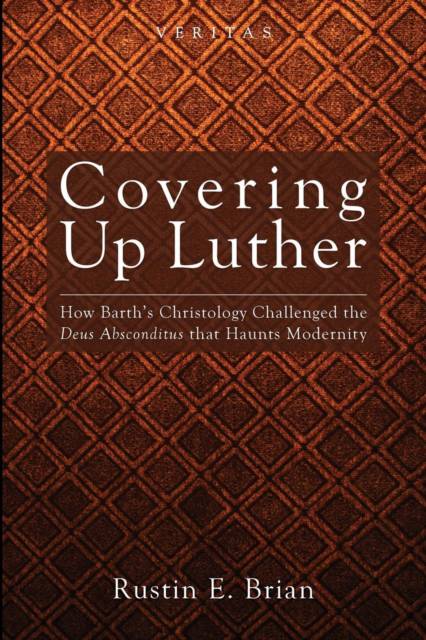
- Afhalen na 1 uur in een winkel met voorraad
- Gratis thuislevering in België vanaf € 30
- Ruim aanbod met 7 miljoen producten
- Afhalen na 1 uur in een winkel met voorraad
- Gratis thuislevering in België vanaf € 30
- Ruim aanbod met 7 miljoen producten
Zoeken
Covering Up Luther
How Barth's Christology Challenged the Deus Absconditus That Haunts Modernity
Rustin E Brian
€ 38,95
+ 77 punten
Uitvoering
Omschrijving
Karl Barth's Christology provides a key to out-narrating the Deus absconditus, which, as Rustin Brian contends, is in fact the god of modernity. Included in this is the rejection of the logical and philosophical systems that allow for the modern understanding of God as the Deus absconditus, namely, dialectics and nominalism. This rejection is illustrated, interestingly enough, in Barth's decision to literally cover up, with a rug, Martin Luther's works in his personal library. Surely this was more than a decorative touch. The reading of Barth's works that results from this starting point challenges much of contemporary Barth scholarship and urges readers to reconsider Barth. Through careful examination of a large body of Barth's writings, particularly in regard to the issues of the knowledge or knowability of God, as well as Christology, Brian argues that contemporary Barth scholarship should be done in careful conversation with the finest examples of both Protestant and, especially, Roman Catholic theology. Barth's paradoxical Christology thus becomes the foundation for a dogmatic ecumenicism. Barth's Christology, then, just might be able to open up possibilities for discussion and even convergence, within a church that is anything but one.
Specificaties
Betrokkenen
- Auteur(s):
- Uitgeverij:
Inhoud
- Aantal bladzijden:
- 214
- Taal:
- Engels
- Reeks:
- Reeksnummer:
- nr. 9
Eigenschappen
- Productcode (EAN):
- 9781620321737
- Verschijningsdatum:
- 13/03/2013
- Uitvoering:
- Paperback
- Formaat:
- Trade paperback (VS)
- Afmetingen:
- 152 mm x 226 mm
- Gewicht:
- 317 g

Alleen bij Standaard Boekhandel
+ 77 punten op je klantenkaart van Standaard Boekhandel
Beoordelingen
We publiceren alleen reviews die voldoen aan de voorwaarden voor reviews. Bekijk onze voorwaarden voor reviews.











